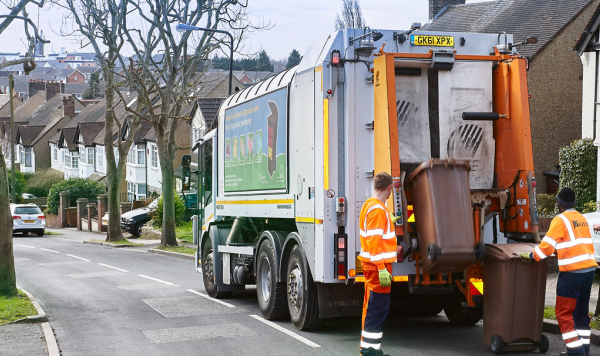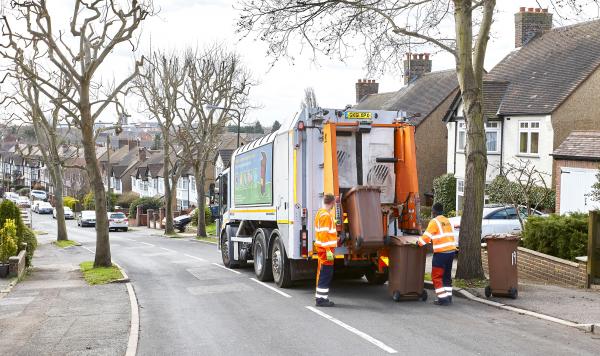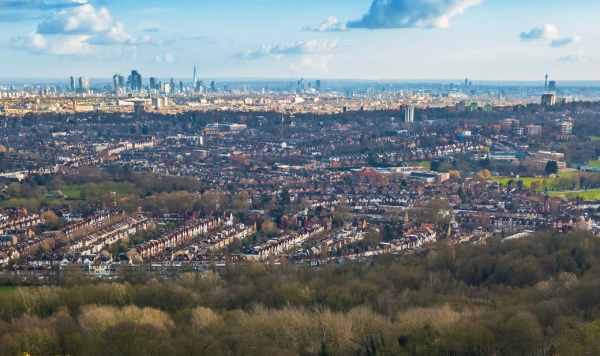Request
Letter from NLWA Chair Cllr Clyde Loakes, MBE, to Ed Miliband MP, Secretary of State for Energy Security and Net Zero, in response to calls from campaigners opposed to the continuation of the North London Heat and Power Project. Original letter is included below.
Response
Dear Secretary of State,
I am writing to you as Chair of the North London Waste Authority (NLWA) in response to a letter sent to you by campaigners which calls for you to revoke the Development Consent Order for the North London Heat and Power Project.
NLWA is replacing the oldest energy from waste plant in the country, on the same site, with a facility that will have the best emissions controls in the country. The new facility will support a heat network for thousands of residents and provide the best value for the taxpayer. Cancelling this project halfway through construction would be the worst possible outcome for the environment, for our seven constituent boroughs, and our residents who pay council tax.
We are disappointed that campaigners continue to attempt to stop a project which has been under construction for two years and which will provide the best long term environmental solution for the waste generated by millions of people. Environmental groups should instead work with councils and government to tackle the causes of waste and target the producers responsible.
The campaigners reference recent media coverage which highlights the urgent need for systemic change to stop the harmful volume of waste this country produces. That is why NLWA shares the government’s aim to preserve resources and the environment for future generations, reduce waste and support a circular economy.
Not everything can be recycled, and councils will still need a solution to deal with waste. A modern, efficient energy recovery facility involves the lowest greenhouse gas emissions of all available options, with recent media coverage failing to identify a suitable alternative to landfill. Electricity is a valuable by-product of energy-from-waste plants, but their main purpose is to provide the least carbon polluting solution to a serious waste problem.
By replacing a 50-year-old plant, we will maximise the energy created by including sustainable heat, which is essential for a net-zero-carbon economy. The flexible capacity of the new facility will mean it does not undermine our innovative waste reduction efforts such as pioneering mattress, polystyrene and hard plastic recycling schemes.
Ultimately, we need to focus on solutions to put an end to unnecessary waste, in particular plastic. For far too long, producers have expected council taxpayers to pay for the disposal of their products. We are hopeful that the packaging extended producer responsibility (EPR) payments confirmed last week will encourage producers to create more environmentally responsible goods. In the long term, it is critical that as part of the government’s commitment to moving towards a circular economy, EPR is expanded so that it creates economic incentives for producers to design out waste and use materials that are recyclable.
The campaigners have three specific asks, which we have responded to below:
1. Revoke the development consent order that the Department for Business, Energy and Industrial Strategy granted to the North London Waste Authority (NLWA) for the new Edmonton incinerator in February 2017
The Development Consent Order was granted following two rounds of public consultation and open hearings. A request to judicially review the decision was refused in 2019. Campaigners also threatened, but failed, to go ahead with a judicial review on our decision to award the contract to build the energy recovery facility. Since our DCO was granted, 30 facilities have been approved in the UK and none offer the same world-class environmental features as ours. It is clear that there are no grounds to revoke our DCO.
2. Direct the Environment Agency to revoke the permit it granted to NLWA for the new Edmonton incinerator in June 2017
There are no grounds to revoke the permit for the new facility. Removing the environmental permit of a facility with the best environmental controls in the country would mean all energy from waste permits in the UK would need to be removed, leaving no alternative but to send all of the country's waste to landfill or overseas.
3. Withhold all direct and indirect funding for the new Edmonton incinerator and its district heat network connections.
District heating is crucial to decarbonising the energy mix in the UK, as supported by the Committee on Climate Change. The network in Edmonton is already built and is ready to take heat energy from the new energy recovery facility. The impacts of not completing the energy recovery facility would be detrimental to north London residents and our efforts to tackle the Climate Emergency. It would deny residents a safe, clean and low-carbon solution for managing their waste and it would deny local homes and businesses the chance to benefit from low-carbon heating and hot water.
The project is already bringing award-winning economic and employment opportunities for north London’s residents, including those who live nearest the site. We’re creating life-changing opportunities for local people, including apprenticeships, training placements, and jobs.
I have also provided information below on the other issues raised in the letter, which have been disproved numerous times over many years.
Yours sincerely,
Cllr Clyde Loakes MBE Chair of North London Waste Authority
Notes on other issues raised
Improving Air Quality
We are replacing a 50-year-old plant with a world-class facility that has the best air pollution control measures in the UK. Ours will be the first in the UK to use advanced technologies, like Selective Catalytic Reduction, to capture and control pollutants including dioxins.
Even at peak times, the levels of Particulate Matter will be 400 times lower than the level set by the UK air quality objective and almost 1000 times lower than World Health Organisation safe limits.
We are following scientific evidence from bodies including Public Health England, the Air Quality Expert Group and the Institute of Occupational Medicine, all of whom are very clear that modern and well-run facilities, do not pose a significant risk to public health.
Recycling rates
There is no evidence to suggest that low recycling rates are associated with using energy from waste for disposal. Some of the local authorities with the best recycling rates use energy from waste, including South Oxfordshire and Stratford-Upon-Avon. Levels of dry mixed recycling collected in north London are better than many other UK cities, but the recycling rate is low because most of our residents live in flats without gardens.
Carbon emissions
Even without carbon capture, a modern energy recovery facility still represents the least carbon-polluting solution to deal with residual waste that needs to be disposed of in north London. It avoids landfill, over 25 times more environmentally damaging in carbon terms, and the added impacts of transporting waste outside the city.
The ERF is a key part the government’s plans to decarbonise heat and buildings supplied by natural gas. Unlike most facilities that only produce electricity, the ERF can provide low-carbon heating and hot water to up to 60,000 local homes and business as part of a long-term heat supply agreement via district heating.
Capacity
Even in the most ambitious scenario, achieving 65% recycling and a 50% reduction in food waste, London would still have a shortfall in energy from waste capacity if the NLHPP is not built. Our ERF has been sized carefully to accept different volumes of rubbish, according to society’s needs in the future. As stated above, there is no conflict with our efforts to boost recycling.
Finances
The ERF is the best value for north London’s council tax payers, while also meeting better environmental and social outcomes. A robust value for money exercise was undertaken in line with The Green Book guidance by HM Treasury and it has been identified that alternative options would have a higher cost. Failing to deliver this crucial project will cost north London’s councils hundreds of millions pounds more, and put public services at the mercy of private companies and market pricing. Abandoning a half-built project with over 80% of the work contracts already committed would be completely irresponsible.
Original letter from STEIN:
Last month the BBC highlighted that ‘burning waste produces the same amount of greenhouse gases for each unit of energy as coal power’, which makes electricity from waste incinerators the UK’s ‘dirtiest form of power’. More people now understand why scientists are warning that waste incineration is a ‘disaster for the climate’ and why they are calling for a ban on new incinerators in England, such as the ones already established in Wales and Scotland.
It is in this context that we request that you immediately withdraw all Government support for the new Edmonton incinerator in Enfield, London, and for its heat supply to a district heat network.
Specifically, we call on you to take the following steps without delay:
1. Revoke the development consent order that the Department for Business, Energy and Industrial Strategy granted to the North London Waste Authority (NLWA) for the new Edmonton incinerator in February 2017
2. Direct the Environment Agency to revoke the permit it granted to NLWA for the new Edmonton incinerator in June 2017
3. Withhold all direct and indirect funding for the new Edmonton incinerator and its district heat network connections.
A failure to take these steps would undermine the Government’s efforts to decarbonise the electricity grid and provide clean power by 2030; its plans for reducing waste arisings in line with the Environmental Targets (Residual Waste) (England) Regulations 2023; and its commitment to creating sector-specific circular economy roadmaps to accelerate progress towards net zero and job creation.
It would also run counter to your commendable postponement of the planning decision on the proposed energy-from-waste (EfW) incinerator at Flixborough. You informed Parliament that this delay would allow the Government ‘sufficient time’ to consider Defra’s forthcoming residual waste infrastructure capacity assessment. Indeed, DESNZ and Defra simply cannot make informed decisions about any incinerator-related project without considering overcapacity risks and the threats they represent to the Government’s circularity, waste minimisation, clean energy, and net-zero imperatives.
In the case of the new Edmonton incinerator, however, construction is going ahead although the plant: a) is entirely surplus to the incineration capacity required to process London’s waste (other plants could treat north London’s waste), and b) was granted development consent based on flawed carbon calculations that significantly underestimate its climate impact. Related concerns include the following:
Social injustice and health risks: The socially unjust siting of the new incinerator in one of the most deprived wards in the UK ensures that the local population will continue to be exposed to highly toxic ultrafine particulates (PM0.1), which ‘constitute a significant health hazard’, make up by far the majority of emitted particles, and are able to pass through advanced filters ‘into the local environment’.
Stunted recycling. North London’s recycling rate has stagnated at about 30%, a rate far below the 2020 target of 50%. This means that although more than half of the waste that is sent for incineration could be recycled if properly sorted, about 70% goes up in smoke. NLWA has failed to install advanced mixed-waste sorting technology, although it could significantly reduce the amount of plastic (and other recyclables) that go to incineration, as well as associated CO2e emissions and toxic pollution.
No CO2 abatement. NLWA calculations indicate that carbon capture and storage technology would not be installed in the Edmonton incinerator until 2035 at the earliest, if at all. This position is incompatible with the Climate Change Committee’s net-zero pathway, which requires the waste sector to halve its CO2 emissions by 2035 (compared to 2019) to enable the UK to meet its net-zero target by 2050.
‘Massively oversized’ incinerator. The new Edmonton incinerator is to be 30% larger than the plant it is to replace, despite a decline in waste arisings and Government efforts to boost recycling and reduce waste, including through the deposit return scheme, extended producer responsibility, and separate food waste collections.
Financial risk. The costs for the new incinerator complex have spiraled out of control, most recently increasing by 25%, from £1.2 billion to £1.52 billion, undermining value for money. Costs to the taxpayer will increase further once incinerators are included in the Emissions Trading Scheme. And the plant’s long lifespan heightens the risk that it will become a costly stranded asset.
Progress on the new incinerator has stalled, due largely to labour shortages. The construction lull and the postponement of the plant’s projected completion to 2027 provide the perfect opportunity to formally pause and rethink the plans for the incinerator and its district heating scheme.
We look forward to receiving a swift response to our three requests.




